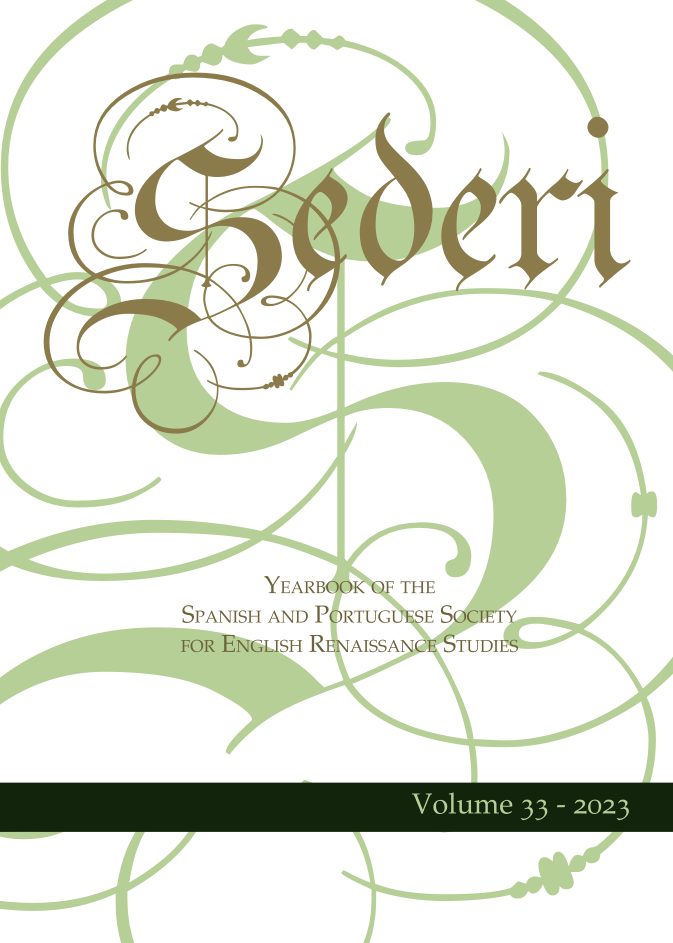Emotions and early modern diplomacy
The case of Iberian ambassadors at the Elizabethan court
DOI:
https://doi.org/10.34136/sederi.2023.1Keywords:
emotions, diplomacy, early modern era, Anglo-Iberian relationsAbstract
Emotions underlie world politics and are essential to state actors’ strategies and exchanges. Considering the complexities of the early modern Anglo-Iberian relations and the diplomatic sources, it is possible to pursue a line of enquiry which analyzes emotions in foreign affairs policies. This paper explores the Iberian diplomatic missions to the Elizabethan court, applying the current research on emotions in diplomacy to the sixteenth century diplomatic practice and its conventions regarding emotional display. Early modern Iberian diplomatic correspondence reveals a collective dimension, conveying an official—rather than personal—emotional strategy on foreign affairs. Spain’s dominant geopolitical and economic circumstances favored a more aggressive diplomatic approach. At the same time, Portugal’s more delicate strategic position and the maintenance of the Anglo-Portuguese Alliance determined a diplomacy of appeasement. Sovereigns selected their envoys based on how their diplomatic skills and emotional behavior would suit the kingdom’s agenda. This diplomatic strategy allowed a collaborative and synchronized emotional behavior amongst state actors to emerge.
Downloads
Downloads
Published
Issue
Section
License
The copyright holder of the published contributions is SEDERI.The hardcopy and an open-access version of the journal will be published simultaneously. The issues will be available online in the SEDERI website (http://www.sederi.org/yearbook/) and other repositories that have signed an agreement with SEDERI.
The authors who publish with this journal agree to the following terms:
a) SEDERI retains copyright of the essay.
b) If the author wishes to republish or rewrite the essay for another journal, or include the essay published in SEDERI in their personal repositories, or in any other way, they should contact the editors to obtain permission to do so. This will entail citing SEDERI as the original source and sending the editors a copy of the new version, or the link to the website, in case of online publishing.
The author(s) hereby warrant(s) that:
a) The essay submitted for publication is an original creation and does not infringe any copyright or property right of another journal, author or publisher.
b) The essay submitted for publication has not been previously published, whole or in part, and is not being considered for publication elsewhere.
c) Written permission has been obtained for any material from other sources included in the essay submitted for publication.
Funding data
-
Ministerio de Ciencia e Innovación
Grant numbers Ref. PID2020-113516GB-I00




